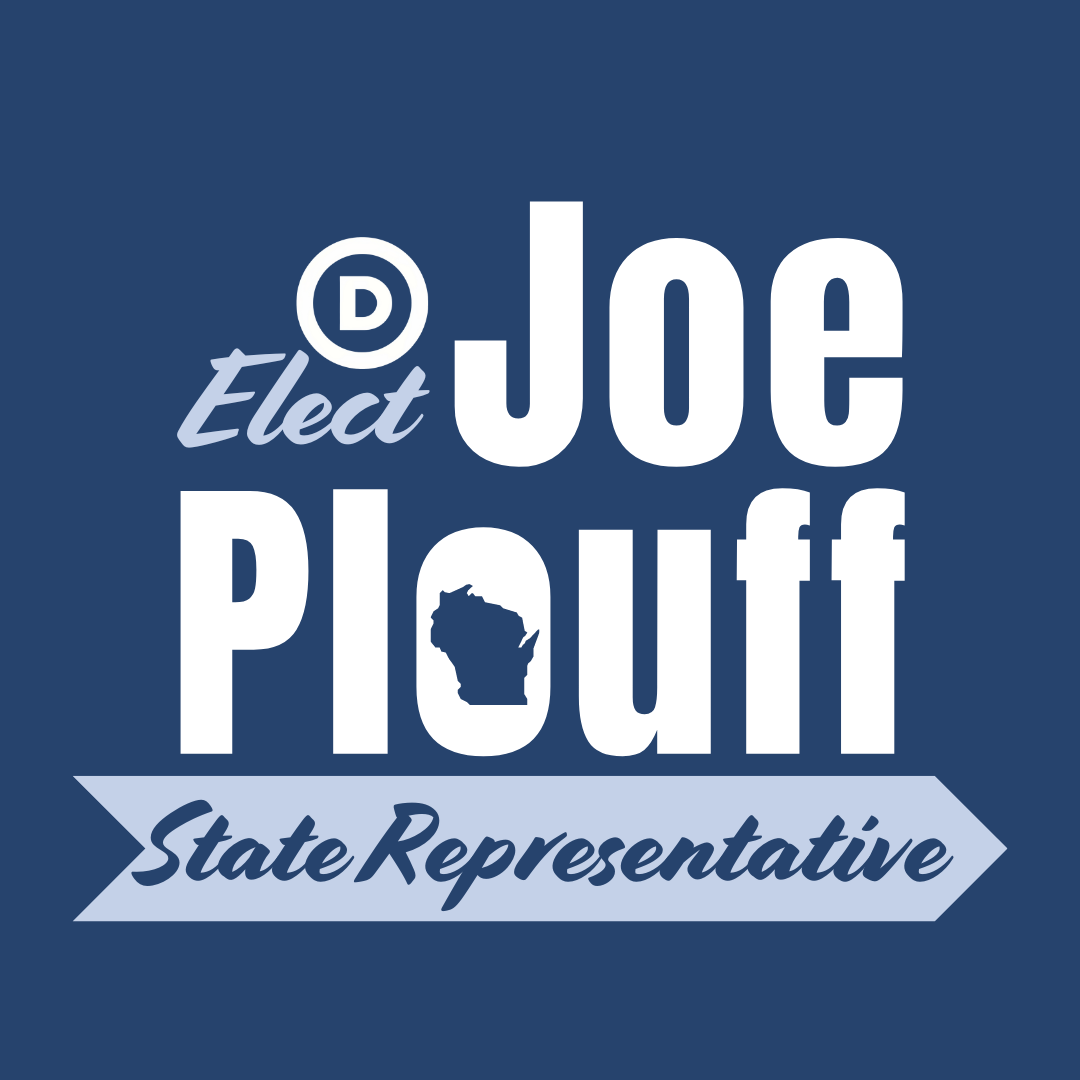Joe Plouff understands that in order to make change, progressives need to build effective infrastructure that supports networking and mutual support and is based on the development of real, effective relationships. He has always walked that talk, still approaches his life and work that way, and if elected, will do so, as he did before, in Madison.
Here’s a story that illustrates the kind of leadership Joe can provide.
After 2000, Midwest states were struggling hard against (right-wing) economic policies that were intended to starve and shrink the government. The “Rust Belt” was growing, and many states in this region were trying to work against an economic and social “race to the bottom.” Unions were struggling, working families – rural and urban – were becoming increasingly stretched, and popular tax cuts were making it harder for state governments to have the resources they needed to address pressing social, economic and environmental issues.
Progressive local, state, and regional social and economic justice community groups were organizing within their respective states against this trend. They worked together to establish a regional “center,” which, for over a decade, helped them work more effectively together. From the beginning, these groups also worked with emerging progressive “champions” who held elected positions at the local and state level. The Midwest States Center sponsored regional gatherings each year, and in its second year, the organizers at the Center decided to invite selected elected officials to caucus together at that year’s regional gathering to explore whether and how they, across state lines, might better support each other as progressive elected officials, in particular in attempting to reverse the ongoing “race to the bottom.”
The response was positive. A regional network that did not challenge the existing in-state leadership structures was just what they needed.
The first meeting of these self–identified progressive elected officials took place in June of 1999. Joe Plouff, who was serving as a Wisconsin State Representative at that time, was present. A steering committee was selected, 2 the group adopted the name “Midwest Progressive Elected Officials Network” (MPEON), and the following mission was adopted:
“We believe that concerted cross-border action by the right-wing helped instigate the “race to the bottom” Among our states, it is high time for progressive elected officials in the Midwest to start talking, thinking, and working in concert to turn the race around and lift each other up. We strongly feel that the power and influence of progressive elected officials would be dramatically increased if only we had an institutional vehicle to promote cross-border communication and collaboration within our ranks.”
The two co-chairs of the steering committee were then Wisconsin State Representative Mark Pocan and Minnesota State Senator Sandy Pappas.
Other members included Spencer Black, WI State Representative; April Fairfield, ND State Representative; Pam Jochum, IA State Representative; Jim Niland, Minneapolis City Council Member; Marvin Shirley, Dallas County (IA) Supervisor; and Lonny Winrich, ND State Representative.
MPEON
“The Midwest Progressive Elected Officials Network (MPEON) brings together local and state progressive elected officials to work on the challenges they face by way of progressive policy initiatives, ongoing communications, shared message, and strategy development, training sessions, and regional gatherings.” MPEON asked the Midwest States Center to provide administrative, program, and logistics assistance, which the Center agreed to do.
Six years later, MPEON had grown significantly. It provided a way for elected officials at the state, regional, and local levels to share resources and learn from one another, and its annual gatherings were tremendously useful. Leaders who joined the network for those gatherings included people like then-US Senator Paul Wellstone, Nation national affairs correspondent John Nichols and future MN Secretary of State Mark Ritchie.
By then, the Center needed to find a full-time coordinator for MPEON, and Joe Plouff applied for that job. He had just concluded eight years in the WI State Legislature, was ready to come home to West Central Wisconsin and knew he could provide the kind of experience and perspective that MPEON would need as it continued to grow.
He intended to work for MPEON for two years and then retire, and he did just that. By the time Joe retired, MPEON membership had grown significantly, and today many of the former MPEON members are influential leaders in their elected roles, including U.S. Representative Mark Pocan, co-chair of the Congressional LGBT Equality Caucus and chair emeritus of the Congressional Progressive Caucus, and current MN Attorney General Keith Ellison. Many of these folks are still in relationship with one another across the region, and a number of them credit their years with MPEON, staffed by Joe, as having significantly helped them develop their leadership skills.

